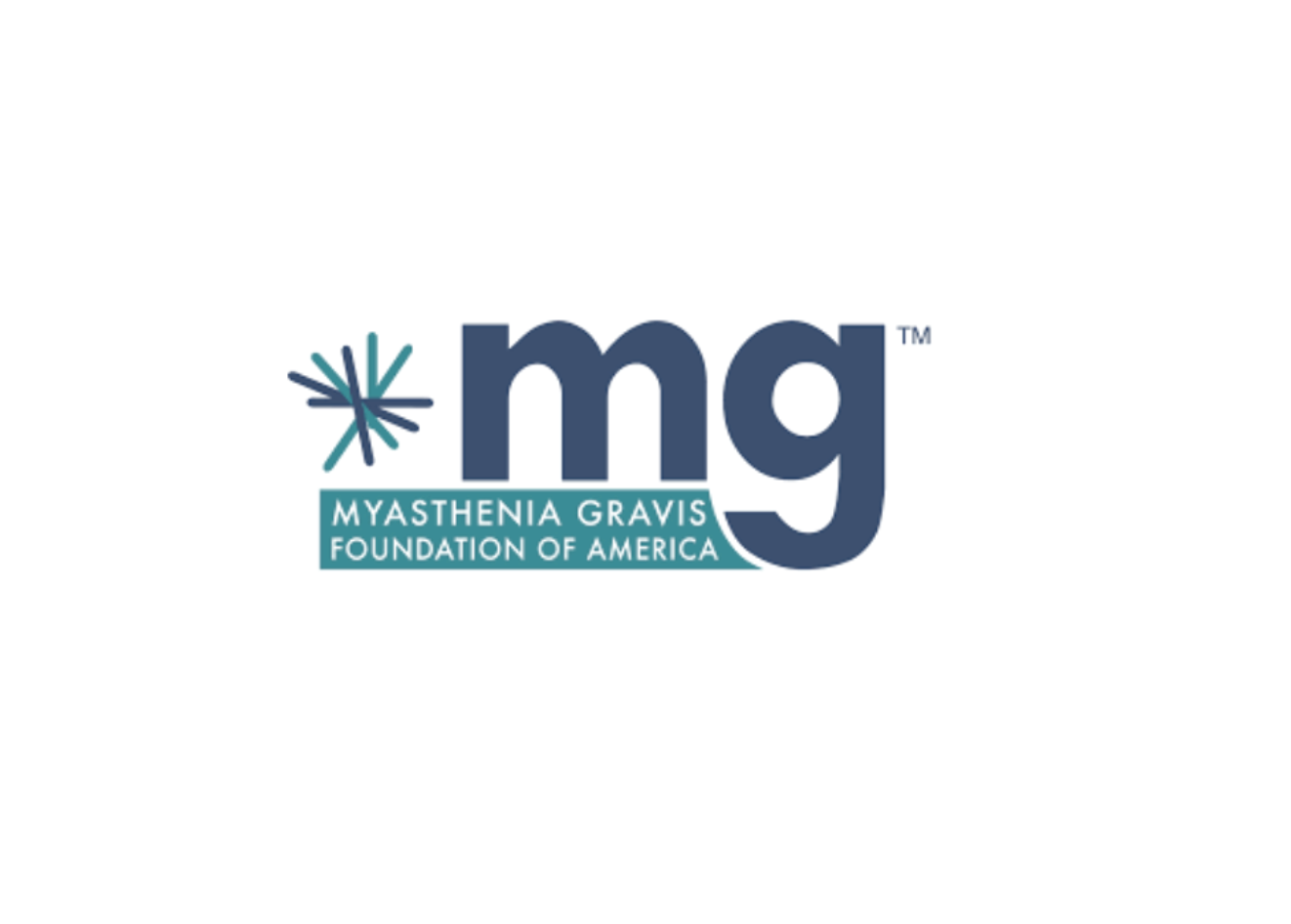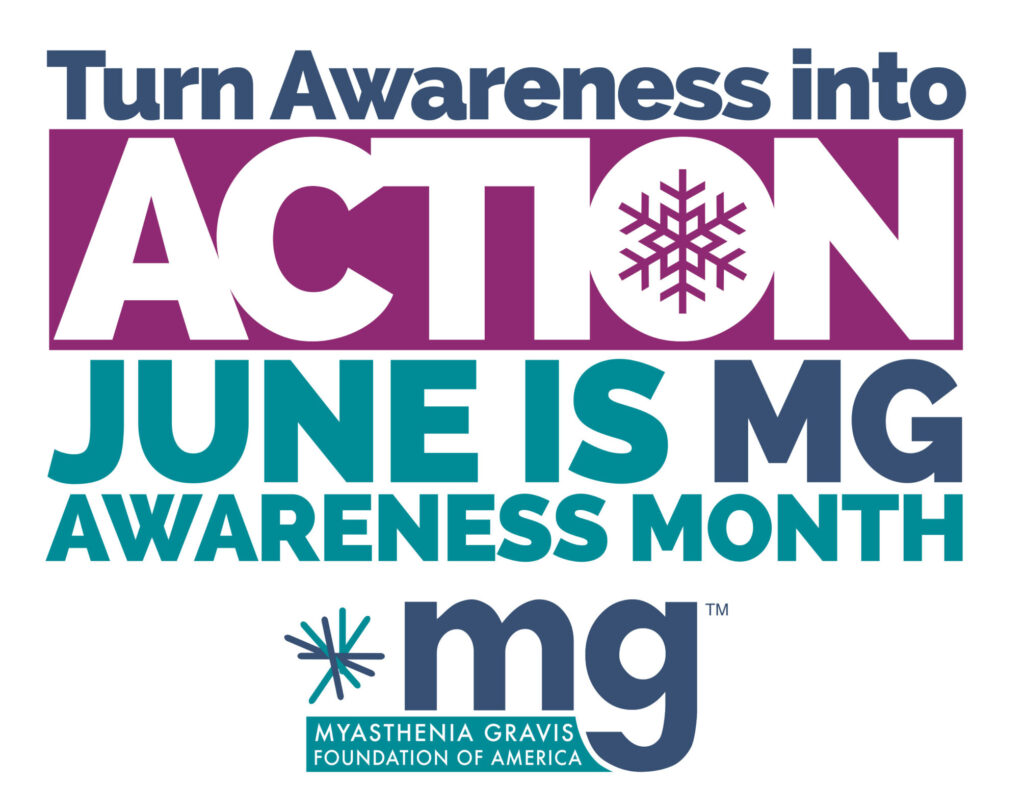

Guest Blog: Understanding Myasthenia Gravis, a Rare Neuromuscular Disease
By Samantha Masterson, President and CEO, Myasthenia Gravis Foundation of America
When graduate student Audrey Getman first experienced myasthenia gravis symptoms, she thought she was having a stroke.
“It came on gradually – I started noticing some facial weakness and then I couldn’t use my mouth,” she says. “My eyes wouldn’t close all the way. They did an MRI – nope, no stroke or aneurysm – and then the ER doctor came back and told me, ‘I had to go look this up because I couldn’t remember the name, but I think it’s myasthenia gravis.’”
Myasthenia gravis (MG), a rare neuromuscular autoimmune disease, is often difficult to diagnose. Patients have symptoms, such as slurred speech, that can mimic other disorders. Each patient’s MG presents a little differently.
Melissa Edmonds, a critical care nurse in the Midwest, felt tired and weak. She found herself dropping items at work and needing to sit down often. She interpreted these symptoms as somehow her fault – she wasn’t taking care of herself, she needed to get more sleep, she was having an anxiety attack.
It was three years after her symptom onset that a provider diagnosed her with MG.
Many patients experience extreme weakness, including weak arms and legs, drooping eyelids, double vision, and trouble smiling, swallowing, and breathing. In MG, impulses from the brain travel down nerves but are blocked by antibodies before impulses reach muscle. The body essentially attacks itself, stopping muscle function.
As with many autoimmune diseases, the exact trigger or cause of MG remains unclear. Women under 40 and men over 60 are more likely to be diagnosed with myasthenia gravis, but it can occur regardless of race, gender, or age. More than 70,000 people are diagnosed with myasthenia gravis in the United States alone.
Some people can go into remission, but for many people, myasthenia gravis is a chronic illness. There is no cure, but there are treatments to manage symptoms.
In addition to long-standing options like corticosteroids and anti-acetylcholinesterase agents, new FDA-approved treatment options have come on the market in the last few years that are changing the game for patients.
- Compliment inhibitors like eculizumab work to reduce immune system attacks that may contribute to MG symptoms.
- C5 protein inhibitors like ravulizumab work by inhibiting the C5 protein in the terminal complement cascade, a part of the body’s immune system.
- Neonatal Fc receptor (FcRn) blockers like efgartigimod are designed to attach to and block the patient’s FcRn, resulting in the reduction of IgG antibodies, including the harmful AChR antibodies that cause gMG symptoms.
Patients may also consider thymectomy (surgical removal of the thymus gland, which can contribute to MG symptoms for some patients); infusions of immune globulins (IgG) to help override the patient’s own antibody production; and therapeutic plasma exchange or plasmapheresis, whereby abnormal antibodies are removed from blood plasma.
Our organization, the Myasthenia Gravis Foundation of America, is helping to fund cutting-edge research to better understand MG and to bring new and advanced treatment options to patients. In 2022, MGFA invested just shy of $1 million in research, including grant funding to researchers across the United States.
Finding a community that “gets it” is another important aspect of disease management. Through others, we find answers and hope. We know we’re not alone.
Brenda Colmenares, who was diagnosed with MuSK-associated MG, a rarer type of this already rare disease, found connection through social media groups dedicated to myasthenia gravis.
“Having a rare disease is super isolating,” she shares. “Online, I saw how many people had the same symptoms.”
MGFA offers regional support groups, “MG Friends” who are available if you have a question or need help through a peer network, in-person and virtual events, and an online community where people can interact virtually.
Having a rare disease doesn’t have to be a lonely struggle.

If you’re a patient or a caregiver, reach out. Sign up to receive a New Patient Pack. Join a support group meeting. Let us know how we can help you on your journey.
The Myasthenia Gravis Foundation of America is a member of the National Health Council. For more information on NHC membership, please email membership@nhcouncil.org.


